The Best Hitch Cargo Carrier and Cargo Bag

When you’re going camping, on vacation, or taking a road trip, expanded cargo capacity is almost a necessity. You don’t want to drive an oversized (and priced) vehicle all year for a few weekend trips! Plus, no matter how large your vehicle is, there’s a good chance you can’t fit everything you need when you’re traveling. That means you’re forced to pick and choose what gear you need to leave at home. The solution is a cargo carrier. A basket that mounts to your trailer hitch and lets you load even more gear that won’t fit inside your ride.
The number of people flying is edging back to pre-pandemic levels. That fact, combined with staffing shortages at airports and airlines, has made air travel potentially chaotic. Traveling by car avoids the hassle and uncertainty of flying, and millions are driving to their summer holiday destinations. However, if your vehicle’s cargo capacity isn’t sufficient, you might consider enhancing it with a hitch-mount cargo carrier.
There are plenty of different cargo carriers out on the market, but hitch-mounted units are convenient and expand your cargo capacity with ease. Designed with practicality in mind, some hitch-mounted cargo carriers even have a foldable design, allowing you to easily store it when it’s not being used. They also keep dirty or potentially messy items out of your vehicle’s interior. Plus, they tend to be lower and easier to load than a pickup truck bed. If you have items you need to protect from the weather, you can add a cargo carrier bag, which is designed to fit standard hitch cargo carrier sizes.
Most cargo carriers can be easily mounted on today’s crossovers, SUVs, and many passenger vehicles. Naturally, you’ll need to make sure your vehicle is equipped with a hitch receiver of the right size, and if not, you can outfit nearly any vehicle with an aftermarket offering.
Trailer hitch cargo carriers and bags tend to go out of stock, and while we keep this list updated, if you find one you like, you should buy it while it’s available. To learn more about hitch cargo carriers and what carriers you can use with your hitch, refer to the FAQ in our table of contents.
Table of contents
- 1. Editor's Pick: Reese Pro Series Rambler (63153)
- 2. Apex ACC500-DLX Aluminum Utility Cargo Carrier
- 3. Best Cargo Bag: ROLA Wallaroo (59102)
- 4. Best Bundle: Mockins Cargo Carrier with Cargo Bag and Net
- 5. Pro Series Amigo Hitch Cargo Carrier Bag
- 6. MaxxHaul Hitch Mount Compact Cargo Carrier (70107)
- 7. MaxxHaul 70108
- How to Choose the Right Hitch Cargo Carrier
- Weights and Trailer Hitch Classes
- Trailer Hitch Carriers Safety Tips
- What About My License Plate?
- How Does a Cargo Carrier Affect Gas Mileage?
- Recent Updates:
1. Editor's Pick: Reese Pro Series Rambler (63153)
One of the highest-rated and most popular hitch cargo carriers on Amazon is the Pro Series Rambler. Sporting a 60 x 24-inch platform, this cargo carrier offers 500 pounds of capacity, while 5.5-inch side rails help keep your cargo secured within the platform. It's also extremely easy to maintain and clean, thanks to a rugged mesh floor. This product fits two-inch square vehicle receivers and features a rise shank design to elevate your cargo, delivering improved ground clearance.
Sporting a two-piece design, this cargo carrier has a durable powder-coat finish to resist elements, scratches, and rust.
Pros | Supports up to 500 lbs, mesh floor design for easy cleaning, fits 2" square hitch receivers, powdercoat finish |
Cons | Install is a bit time consuming (but simple), heavy, included bolts can rust |
2. Apex ACC500-DLX Aluminum Utility Cargo Carrier
If you're using a cargo carrier like these, you're probably saving the biggest and heaviest cargo to go in it, because big and heavy things are tough to lift up into your SUV or pickup. This cargo carrier from Apex helps make loading bulky items easier, thanks to the included folding ramp. Slide that 250-quart cooler up and down the ramp instead of straining to pick it up. Or roll that grille up the short distance and strap it down in a hurry. Plus it is ideal for lawnmowers and even mobility scooters.
The Apex carrier can hold up to 500 lbs. It's also made from aluminum for less weight and to give you more cargo capacity without stressing your hitch. It has four tie down eyelets to secure your gear and reflectors on the back to help make sure the rack can be seen behind your vehicle. Plus the ramp folds in half when stored so it doesn't stick out from your vehicle looking silly and blocking your view.
Pros | Handy folding ramp for loading, aluminum for light weight |
Cons | Not a cheap option, ramp will likely mean more noise on the road |
3. Best Cargo Bag: ROLA Wallaroo (59102)
ROLA is an Australian company that makes a number of cargo carrier bags that hit a sweet spot of quality and affordability. They've only recently entered the US market, but they have decades of experience making racks and bags that stand up to Australia's harsh conditions. The ROLA 59119 Expandable Cargo Bag is an extra large 24 x 24 x 59-inch model with a huge maximum 20 cubic feet capacity, which requires a full-sized 60 x 24-inch cargo carrier. For reference, 20 cubic feet is about the capacity of a standard refrigerator!
Manufactured from a premium-quality, rainproof material with sonically welded seams and a velcro storm flap over the zipper, this cargo bag will keep all its contents dry, clean, and protected no matter where you're heading. It features six dual-adjustable tie-down straps to secure both the bag and compress your load. Unloaded, it folds down compactly and only weighs 8.4 pounds empty.
Pros | Expandable design, includes 6 securing straps, sonically welded seams, rainproof |
Cons | Soft fabric sides can make it difficult to load, too big for some |
4. Best Bundle: Mockins Cargo Carrier with Cargo Bag and Net
Want a single solution that covers all your hitch cargo carrier bases? This recommendation from Mockins includes a waterproof cargo bag, a cargo net, a hitch stabilizer, and a pair of ratchet straps—in addition to the hitch carrier. The carrier is constructed from heavy-duty steel with an anti-rust coating and has the capacity to hold up to 500 lbs of cargo. Once assembled, the tray measures 60 x 20 x 6.0 inches and features a simple-to-clean mesh floor.
Attached to the carrier is a hitch hauler with a two-inch shank rise for better ground clearance, and it's foldable for when you're not having to use it. It's designed to fit two-inch receivers. The included cargo bag has a capacity of about 15.5 cubic feet, allowing you to store personal belongings without having to worry about weather conditions.
This recommendation is great if you need both a cargo carrier and a cargo bag. You won't have to worry about whether or not the cargo bag fits your cargo carrier since these products are designed to work with one another.
Pros | Package includes cargo carrier and cargo bag, heavy duty steel construction, anti-rust coating, mesh floor, includes cargo net and ratchet straps |
Cons | Cargo net is on the small side, coating isn't the greatest quality |
5. Pro Series Amigo Hitch Cargo Carrier Bag
The Pro Series Amigo is a universal rainproof cargo carrier bag that fits any hitch cargo carrier that's at least the standard large 59 x 18.5-inch size. It's made of heavy, thick material that helps its 15-cubic-foot volume hold its shape, and a closes with a heavy-duty zipper covered with a velcro flap. At 24 inches tall, it can hold items as big as two sets of golf clubs.
The six included straps and buckles have multiple rows of reinforced stitching to help them hold up to severe conditions and years of use, and they help compress the contents for safe hauling. Nevertheless, like all cargo bags, if you expect rough roads, you should add a couple more ratchet straps for peace of mind.
Pro Series also sells this bag branded as a Reese.
Pros | Heavy duty, excellent weather protection, six included lash-downs straps |
Cons | Heavy fabric can make zippering difficult, especially in cold weather |
6. MaxxHaul Hitch Mount Compact Cargo Carrier (70107)
MaxxHaul has several cargo carriers available, one of which is this option with a 500-pound capacity and 51 x 17.5 x 4.5-inch area. Constructed from heavy-duty steel, this carrier boasts reflectors for added safety, a tongue that extends under the entire basket, and one-piece side rails to keep your cargo securely in place. This product fits standard Class III and IV 2 x 2-inch receiver hitches and weighs 27 pounds.
Unlike many other carriers, this one has open bars instead of a mesh base. You might not want to use it with a cargo bag this way, but it's also easy to drop in a piece of plywood or other material to support a bag or other cargo. Overall, it's an inexpensive and fairly basic cargo carrier that does the job.
It's designed to sit low, allowing liftgates to open, but on some vehicles, this will put it close to the car's exhaust. Take some measurements or use caution if that's the case with your car since the exhaust can get hot and could melt your cargo—or worse, set it on fire.
Pros | Compact design, built-in reflectors, heavy duty steel construction, 500 lb capacity, fits standard Class III and IV hitches, price |
Cons | No mesh base for smaller objects, finish chips easily, sits low so it could be close to the exhaust |
7. MaxxHaul 70108
If you're in the market for something lighter weight, another MaxxHaul offering is this aluminum cargo carrier. Aluminum cargo carriers are much lighter than identical steel carriers of the same size but tend to be more expensive and can crack rather than bend if you back into something. Designed to fit Class III and Class IV 2 x 2-inch hitch receivers, this aluminum basket is resistant to corrosion and easy to install, featuring reflectors for increased road safety, just like MaxxHaul's other products. It has a maximum distributed weight capacity of 500 pounds and is 47.25 x 20.25 x 6 inches inside.
The high side rails help keep cargo secure, while this carrier's design provides limitless tie-down points for your loads. The supporting frame for this product is made from heavy-gauge steel with a powder-coat finish to resist rust and corrosion. The carrier itself weighs 30 pounds.
Pros | Aluminum construction, supports up to 500 lbs, includes reflectors, fits Class III and Class IV hitch receivers, limitless tie down points |
Cons | Steel and aluminum construction could lead to corrosion, sits low, semi-open design |
How to Choose the Right Hitch Cargo Carrier
There are a few things to take into account when choosing the right hitch cargo carrier for your vehicle. You want to start off by determining what hitch class your vehicle has, especially if you installed an aftermarket hitch. You'll want to make sure the hitch cargo carrier you're purchasing is compatible with your specific hitch class.
Then you'll want to verify your receiver size. Class I and II hitches are 1.25 inches, and Class III and are two inches. See the next section for more.
Next, determine the type of cargo and how often you'll be using your cargo carrier. Do you need a solution that folds up when it's not in use? Or perhaps you live in an area that often experiences rain, which means you'll want a weatherproof cargo bag to protect your gear. If you believe you won't need to use your cargo carrier that often, then you might want to choose a carrier that is easy to install/uninstall.
Lastly, make sure you estimate the weight of your cargo and purchase a cargo carrier that will support that weight. Some cheaper cargo carriers will have a lower weight capacity, so keep that in mind if you plan on hauling heavy items.
Weights and Trailer Hitch Classes
Photo credit: NHTSA.gov
There are five classes of passenger car and light-duty truck trailer hitches, I through V*. There are a number of specifications for each, but for figuring out which cargo carrier you can use, you only need to worry about Tongue Weight (TW) and Receiver Size.
Tongue weight is how much weight you can press down on your hitch. When towing a trailer, that's only part of the weight because its wheels hold it up, but it's 100% of a cargo carrier's weight. In fact, because of leverage, if you were to put 500 pounds in a cargo carrier for an SUV that sticks out a long way, you could have far more than 500 pounds TW.
Receiver size is just the size of the square opening of your hitch and conveniently, that's only going to be either 1.25 inches or two inches.
Class I and Class II use a 1.25-inch receiver. The TW for Class I is 200 pounds and Class II is 350 pounds. You won't be able to use a 500 pound cargo carrier with a Class I or II hitch because of the smaller receiver and weight limit. Class I and II hitches are designed for things like bicycle carriers and lightweight trailers.
Class III and up use a two-inch receiver. Class III is rated for 800 pounds TW, so any vehicle with a two-inch receiver will work with any of the hitch cargo carriers here. Class IV is a different style of heavy-duty two-inch hitch that won't mount on any car or most SUVs, and goes up to 1,000 pounds TW, and Class IV is rated for 2,400 pounds.
So if you have a two-inch hitch, you know you have a Class III or better hitch, and can put on a carrier rated for 500 pounds—presuming, of course, you've inspected underneath for rust and loose bolts.
*There's also a 2,700-pound TW, 2.25-inch Class V Commercial hitch, but you won't see one on anything less than a one-ton truck.
Trailer Hitch Carriers Safety Tips
There are two major safety concerns with hitch cargo carriers: Visibility, and load security. They're simple problems with complicated answers.
Perhaps the biggest safety issue when you're using a cargo carrier is that you probably can't see it when you're driving. Not only can it easily extend three feet beyond your bumper, making it very easy to back into things; but the swing circle when you're turning is greatly increased, too. If you can see your cargo bag, it's probably blocking your rear window; and almost every style will block a backup camera. The easiest thing you can do is grab a couple of empty cardboard boxes, and spend even a few minutes in a driveway or parking lot, preferably with a spotter, figuring out how much room you need to leave. Some people will even put a little sticky note on the corner of their rearview mirror (where it won't obstruct your vision) as a reminder.
More than a few people have lost their load out of a cargo basket. Remember, every bump you go over is going to be bigger and harsher by the time it's transmitted to your carrier. Ratchet straps are cheap, but do take a little practice to use properly, so read instructions carefully and try them out first. Every time we have a load secured with any kind of strap, we stop after the first 10 or 15 minutes to check on it and tighten everything up. Make a habit of doing that at every stop and keep an eye in your mirrors (and ear open) for the telltale flapping of a loose strap.
What About My License Plate?
If your carrier covers your license plate, you can be pulled over and given a ticket. In Michigan, for instance, just having a trailer hitch ball partially covering a license plate is enough for a violation. There are generally no exemptions for cargo carriers or bicycle racks.
However, it is usually legal to relocate your license plate onto the hitch carrier temporarily, and a universal trailer license plate bracket costs less than $10, although you're still going to have to mount it to your carrier, and take it back off again when you're done. It will have to be at legal height (at least 12 inches off the ground), and have nighttime illumination. Fortunately, there are lots of affordable waterproof, battery-powered LED lights you can use to complete your installation.
How Does a Cargo Carrier Affect Gas Mileage?
Photo credit: Office of
Energy Efficiency & Renewable Energy
You might think hanging a weight off the back of your car would make a big difference, but in a 2014 test in the SAE International Journal of Passenger Car Mechanical Systems, researchers found that a 50 x 40-inch hitch cargo carrier with a 20-inch high load only made a 1% difference in fuel economy. That's almost unnoticeable, especially compared to the 25% penalty a roof cargo box makes. According to the chart, at lower speeds, both vehicles tested actually got better mileage with a cargo carrier. At 80 mph, faster than you should ever go with a cargo carrier installed, their test 2009 Toyota Corolla had it's mileage drop from 30.9 mpg to 30.1 mpg—vs. 22.6 mpg with a rooftop carrier.
Recent Updates:
June 22 2023: Removed promoted product, added Apex ACC500
January 18, 2023: Added a new promoted product recommendation.
January 3, 2023: Removed promoted product recommendation.
December 20, 2022: Updated product links.
December 1, 2022: Updated product links.
June 30, 2022: Removed unavailable Discount Ramps Elevate cargo carrier.
June 10, 2022: Updated and added links for existing products. Removed unavailable Lund 601010 cargo carrier.
March 2, 2022: Removed unavailable MaxxHaul 70103.
February 24, 2022: Added a promoted product recommendation.
September 9, 2021: Updated product specifications. Replaced unavailable Leader Accessories product with Discount Ramps Elevate. Added FAQ sections.
September 2, 2021: Removed out of stock ROLA Rainproof Cargo Carrier Bag, replaced with Pro Series Amigo Hitch Cargo Carrier Bag.
We are committed to finding, researching, and recommending the best products. We earn commissions from purchases you make using the retail links in our product reviews. Learn more about how this works.
Photo credit: MaxxHaul

After completing a degree project in automotive design, Dave wrote and photographed for almost a decade in print car magazines (remember those?), before transitioning to digital. He now subjects a series of old high-performance cars to the roads and weather in Vermont and wonders why they're always expensively broken. Please stop when you see him crawling under one on the side of the road.
More by David Traver Adolphus



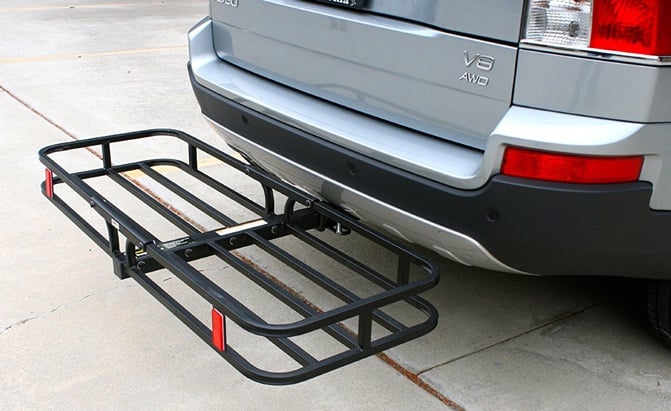
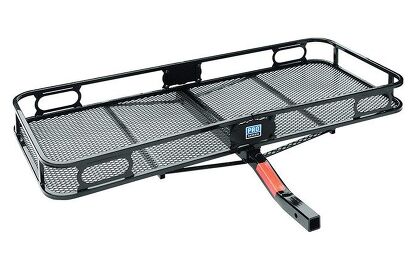











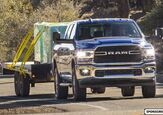








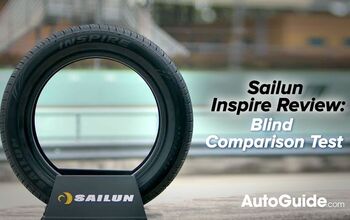
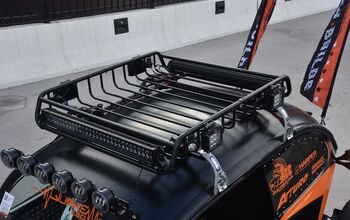



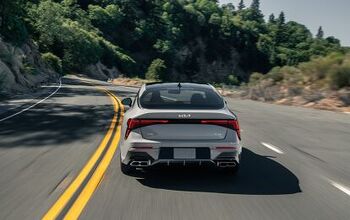

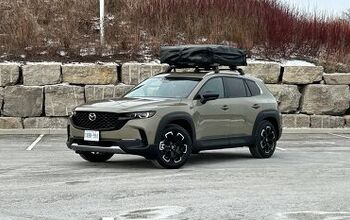
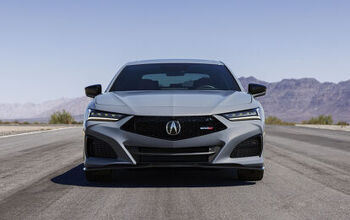





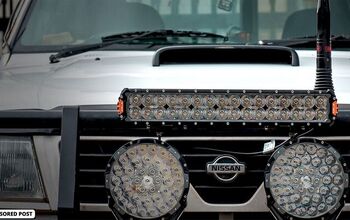

Comments
Join the conversation